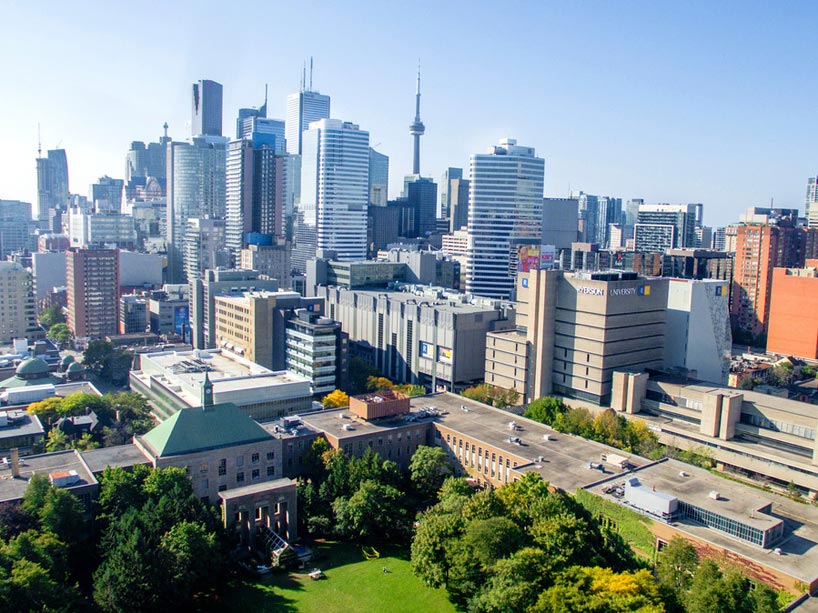What you need to know about cannabis on campus

Photo: Ryerson’s approach to preparing campus for the legalization of cannabis is guided by the university’s principles of upholding a safe and healthy teaching, learning and working environment.
On October 17, 2018, the use, cultivation, and sale of recreational cannabis becomes legal in Canada. What does this mean for Ryerson and its community?
Ryerson is committed to upholding a safe and healthy environment that promotes the physical, mental and spiritual wellbeing of its community members. These principles are central to Ryerson’s approach to the legalization of recreational cannabis. Here’s what you need to know.
“Who will be allowed to buy cannabis?”
You must be 19 or older to buy, use and process recreational cannabis—the same as the minimum age for consumption and purchase of alcohol and tobacco in Ontario.
“Can I smoke cannabis on campus?”
Smoking/vaping any substance (tobacco, cannabis) inside Ryerson University buildings, including residences, and smoking and vaping within nine metres of building entrances and exits is prohibited, as per the Smoke Free Ontario Act.
As per the provincial law, you cannot smoke or vape in places where children gather (external link) . Ryerson community members are not permitted to smoke or vape within 20 metres of the Ryerson Early Learning Centre (ELC) playground, which is located in the Ryerson Quad.
In addition, consuming recreational cannabis in the workplace is illegal (external link) , and employees are expected to arrive to work fit to perform their duties.
“Can students who live on campus grow cannabis in residence?”
No, students are not permitted to grow cannabis in Ryerson residences.
For more information on residence rules and guidelines, (PDF file) please see the Ryerson Residence Community Standards.
“What if I have a medical marijuana accommodation?”
Medical cannabis is subject to different rules than recreational cannabis. For students, Ryerson’s Academic Accommodation Support will continue to assess requests for use of medical marijuana on a case-by case-basis as per (PDF file) Senate Policy 159.
For staff and faculty, Workplace Wellbeing Services will continue to assess requests for use of medical marijuana as per the Accommodation for Persons with Disabilities Policy.
“What are some effects of cannabis use?”
Although cannabis will be legal, it is not a harmless drug. Studies show that close to one in 10 adults who have used cannabis will develop an addiction to it (approximately one in six for those who started as teenagers). Early and frequent use can alter the structure of the developing brain, and there are possible links between regular cannabis use in youth and increased risk for depression and suicide. Long-term effects of cannabis on the brain can include memory problems, concentration problems, and increased risk of psychotic symptoms, addiction and anxiety. Other health effects can include bronchitis, lung infections and chronic cough. Driving drug-impaired is as dangerous as driving drunk.
“What if someone wants to stop using cannabis?”
Workplace Wellbeing Services, Student Health and Wellness, and the Employee and Family Assistance Program provide a wide range of support and resources for students, faculty and staff.
“Where can I learn more about cannabis?”
Full and up-to-date information on campus and residence rules, health considerations/resources, Ontario cannabis laws, and support services is available at Ryerson’s Cannabis on Campus website: https://www.torontomu.ca/cannabis. Please note that the government’s cannabis legislation is undergoing changes. The Ryerson website will be updated accordingly.